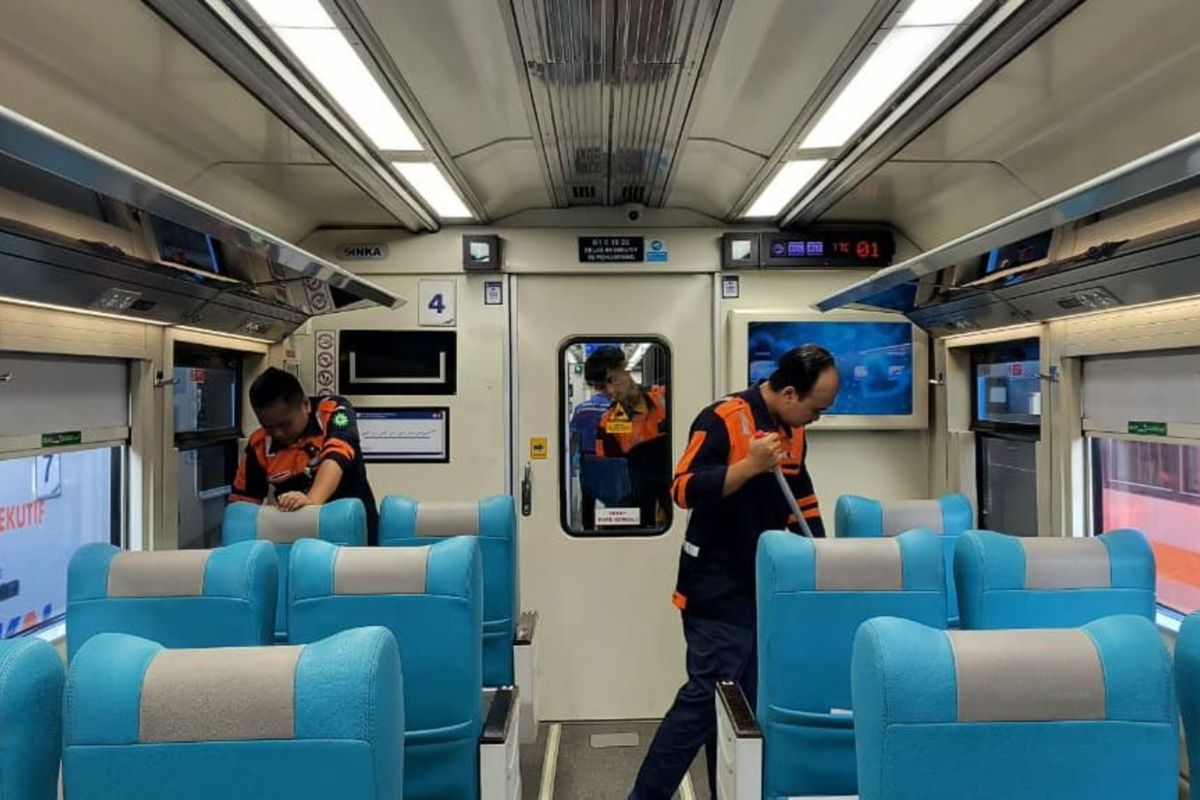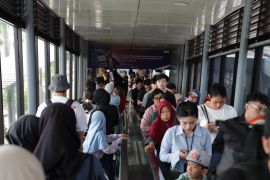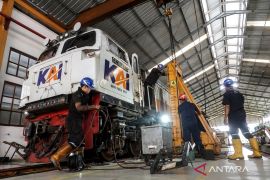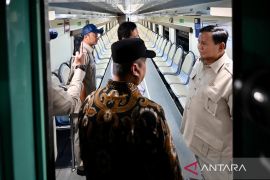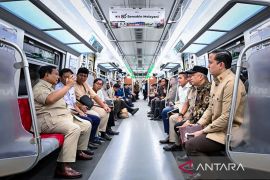Smoking in public spaces undermines the basic right to clean air.Jakarta (ANTARA) -
The proposal to add café and smoking carriages on long-distance train routes has triggered widespread opposition from health experts and non-governmental organizations.
The idea came from Nasim Khan, a member of Commission VI of the Indonesian House of Representatives (DPR RI), who argued that smoking rooms on trains could improve passenger comfort and boost revenue for PT Kereta Api Indonesia (KAI).
The Indonesian Youth Council for Tactical Changes (IYCTC) criticized the proposal as reckless. Executive Director Manik Marganamahendra described the plan for smoking carriages as a major policy setback.
Since 2012, PT KAI has declared all trains Smoke-Free Areas (KTR), with strict sanctions including passenger removal for violators. This regulation aligns with Government Regulation No. 28 of 2024 and Health Law No. 17 of 2023, which define public transportation as KTR.
The Ministry of Transportation stressed that the smoke-free policy is essential for maintaining clean air and protecting the health of passengers, while also reflecting the government’s commitment to upholding health standards in public transport.
This regulation also demonstrates the government's consistency in enforcing regulations while maintaining the quality of public transportation services in accordance with established health standards.
In addition, PT KAI Operational Area I Jakarta stated that all train services, whether long-distance trains (KAJJ), local trains, or commuter trains, are designated as smoke-free zones.
The smoking ban also applies at all departure and intermediate stations. Passengers are only permitted to smoke in designated smoking areas that are clearly marked.
Therefore, the proposal for dedicated smoking carriages is seen as a step backward, considering that KAI’s reforms were implemented to promote modernization, safety, and public comfort.
Related news: Joint action pushed to ban under-21 cigarette sales
Allowing cigarettes is a ticking time bomb
Marganamahendra then recalled the deaths of 123 passengers on Varig Flight 820 bound for Paris in 1973, which were caused by a discarded cigarette butt. The tragedy was triggered by a fire that broke out in the airplane’s lavatory during the flight.
The fire spread, making it difficult for passengers to breathe. Although the pilot managed an emergency landing, all 123 passengers died of asphyxiation.
Given these conditions, allowing cigarettes on public transportation is considered a ticking time bomb. From a safety perspective, smoke could ignite a fire or disrupt the train’s ventilation system.
Providing designated smoking carriages is seen as costly, requiring funds for cleaning smoke residue and cigarette butts, along with routine sterilization of seats, walls, and floors, according to IYCTC Advocacy Officer Daniel Beltsazar Jacob.
Increased maintenance costs and shortened equipment lifespans would force KAI to allocate additional funds, creating a burden either for passengers through fare hikes or for the government through subsidies.
In terms of economic losses, a 2015 study by Soewarta Kosen, a researcher at the Faculty of Public Health, University of Indonesia (FKM UI), estimated that losses caused by smoking reached Rp600 trillion—more than four times the cigarette excise revenue collected by the government in the same year.
Therefore, introducing dedicated smoking carriages on trains would only add to the government’s burden without providing real benefits.
From a health perspective, the danger of thirdhand smoke also remains, even after passengers disembark. Thirdhand smoke refers to the residue of nicotine and other harmful chemicals left behind by cigarette smoke.
Health experts note that cigarette smoke can linger for months on sofas and up to 19 months on clothing.
Most importantly, this proposal violates the rights of children, the elderly, and vulnerable passengers to safe and comfortable transportation. Smoking in public spaces undermines the basic right to clean air.
Related news: Cigarettes are root cause of multidimensional problems: Ministry
Public transportation as smoke-free zones
Meanwhile, Vice President Gibran Rakabuming Raka has emphasized the importance of lactation rooms for breastfeeding mothers and diaper-changing rooms for babies on long-distance train journeys.
According to him, public policy should be formulated by identifying priority needs.
Any fiscal resources available for the state-owned railway company, PT KAI, should instead be prioritized for pregnant women, breastfeeding mothers, the elderly, and people with disabilities, he said.
Rather than providing space for smoking, the government should strengthen smoking cessation services and protect public transportation as smoke-free zones.
He further emphasized that the proposal is inconsistent with President Prabowo Subianto’s priority programs, particularly in the health sector.
As a presidential aide, Gibran seeks to ensure that President Prabowo’s vision, mission, and flagship programs are implemented effectively.
He highlighted that the proposal for smokers-only carriages contradicts the government’s health priorities, which include free health checks, stunting eradication in toddlers, and the revitalization and construction of regional hospitals.
Considering the various negative impacts, support has been voiced for KAI to continue enforcing its smoke-free train policy.
The Chairman of the Honorary Council of the Indonesian Lung Doctors Association (PDPI), Prof. Tjandra Yoga Aditama, believes that the smoke-free train policy can discourage smoking and even motivate some smokers to quit entirely.
Thus, this regulation guarantees healthy and safe train travel for all groups, including children, pregnant women, and the elderly.
Aditama, who served as Director of Infectious Diseases at the WHO Southeast Asia Regional Office from 2018 to 2020, stressed that policymakers are obliged to protect and improve public health.
Therefore, the non-smoking culture must be reinforced through continuous improvements to policy, including maintaining smoke-free trains.
Related news: Cigarettes pose threat to Indonesia's demographic bonus in 2045
Related news: E-cigarettes pose serious threat to young people: Ministry
Related news: BNN uncovers new drug type disguised as vape pods
Editor: M Razi Rahman
Copyright © ANTARA 2025
